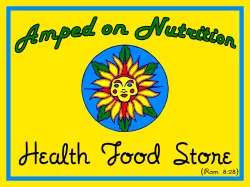

Categories and Posts

Best Foods to Heavy Metals Detox Your Kids, Naturally.
Listen to this article.
Best Foods to Heavy Metals Detox Your Kids, Naturally.
While the body does have natural mechanisms for detoxification, certain foods can support those processes and help to reduce heavy metal toxicity. It's important to consult with a healthcare professional before making major changes, but here are some general dietary tips that can help support heavy metal detoxification for kids:
1. Increase Antioxidant-Rich Foods
Antioxidants help to protect the body from the oxidative stress caused by heavy metals. Foods that are rich in antioxidants include:
Berries (blueberries, strawberries, blackberries)
Leafy greens (spinach, kale, parsley)
Apples (especially with the skin on)
Oranges and citrus fruits (rich in vitamin C)
Carrots (beta-carotene supports detox)
Tomatoes (rich in lycopene, another powerful antioxidant)
2. Cilantro (Coriander)
Cilantro has been shown to help with the mobilization of heavy metals from tissues and assist in their removal from the body. It’s often included in detox protocols for adults, and some studies suggest it may also benefit kids when used appropriately. Add fresh cilantro to salads, smoothies, or soups.
3. Garlic
Garlic contains sulfur compounds that help to support detoxification and bind to heavy metals, allowing them to be excreted more easily. It’s a kid-friendly option when added to meals like soups, pastas, or even roasted vegetables.
4. Chlorella and Spirulina (Algae)
Chlorella, a type of freshwater algae, is thought to help remove heavy metals from the body, particularly lead and mercury. Spirulina is another option, though it’s not as powerful in this regard. These algae can be added to smoothies, but it’s essential to use these sparingly, especially in young children, as they can have strong detox effects. Always consult a pediatrician before using supplements like these.
5. Cruciferous Vegetables
Vegetables such as broccoli, cauliflower, Brussels sprouts, and cabbage are rich in compounds like sulforaphane, which support the liver's detox processes. These vegetables also help to support the body’s natural detoxification pathways.
6. Fiber-Rich Foods
Fiber helps to bind to toxins and supports regular bowel movements, which is key in detoxing. Include foods like:
Whole grains (oats, quinoa, brown rice)
Beans and legumes
Fruits and vegetables with high fiber content (like pears, sweet potatoes, and peas)
7. Pectin-Rich Foods
Apple pectin and citrus pectin help to bind to heavy metals and remove them from the body. Apples and citrus fruits are great sources. Other sources of pectin include pears and quinces.
8. Bone Broth
Bone broth contains gelatin, collagen, and amino acids like glycine, which support detoxification. It’s soothing and nutritious, making it easy to incorporate into a child's diet through soups or by simply drinking it.
9. Filtered Water
Heavy metals can often be found in tap water, so it’s a good idea to provide your child with filtered or purified water. Water helps flush toxins from the body, and staying hydrated is crucial for proper detoxification.
10. Healthy Fats
Healthy fats support the absorption of fat-soluble nutrients and help with the elimination of toxins. Include:
Avocados
Olive oil
Flaxseeds
Chia seeds
Coconut oil
11. Probiotics
Probiotics can help to maintain a healthy gut, which is essential for detoxification. A healthy gut microbiome can help bind to heavy metals and assist in their removal. Foods like yogurt, kefir, and fermented vegetables (such as sauerkraut) can support the gut.
Foods to Avoid
Processed foods (they often contain additives and preservatives that can burden the body)
Sugar (it can promote inflammation and compromise the body’s detoxification processes)
Artificial sweeteners and food coloring (these can also add to the toxic load)
Tips for Supporting Detox
Regular Meals and Snacks: Keeping your child’s blood sugar stable with regular meals and snacks helps to maintain healthy detox processes.
Avoiding Environmental Exposures: Alongside dietary support, minimizing exposure to heavy metals (e.g., lead, mercury, arsenic) through water, air, and food choices is critical. For example, avoid fish high in mercury like shark, swordfish, and tilefish.
The key is to integrate these foods gradually and make sure your child is eating a balanced diet overall. A slow and gentle approach to detoxification through diet is typically better than trying more aggressive methods, especially in kids.
Always consult your physician before making major health decisions.

Summer Hours
Mon - Sat
10 am - 5 pm
Amped On Nutrition
673-C Plaza Road
Quathiaski Cove BC V0P 1N0

